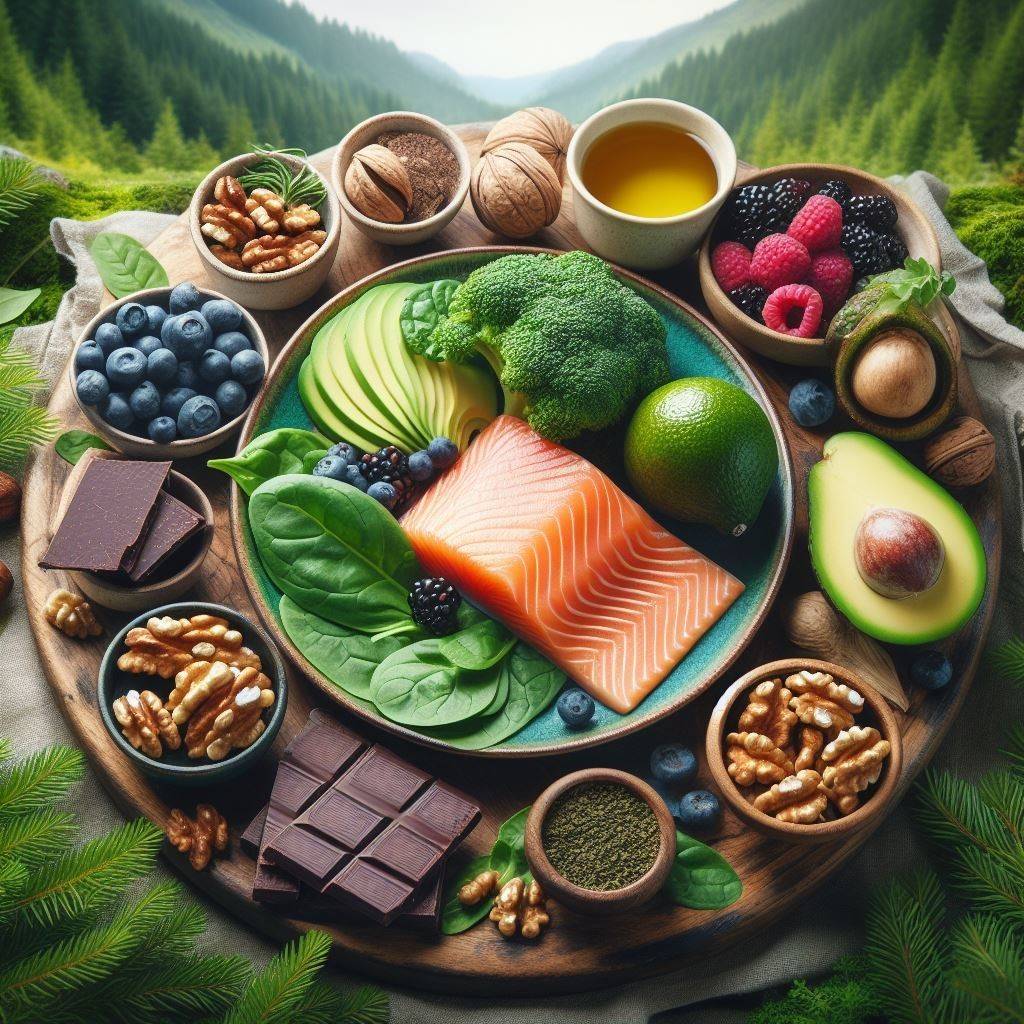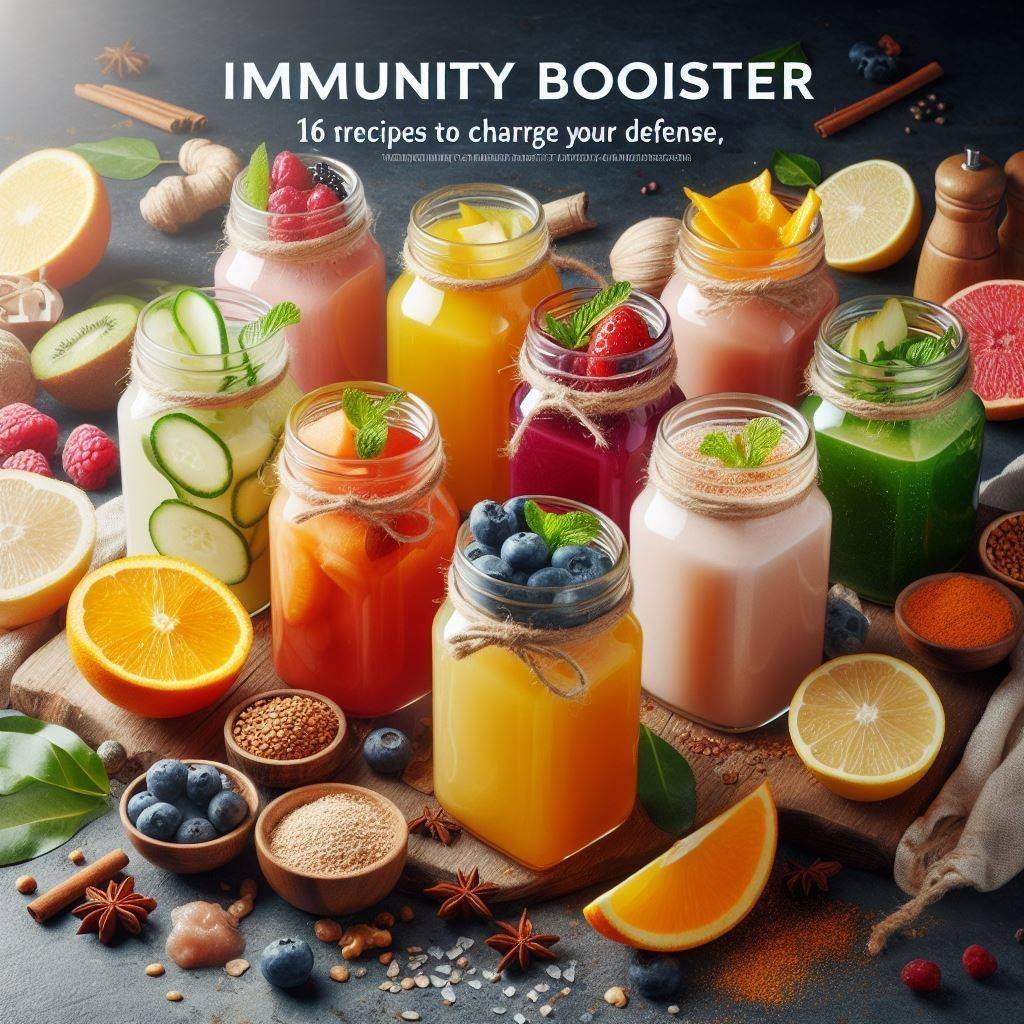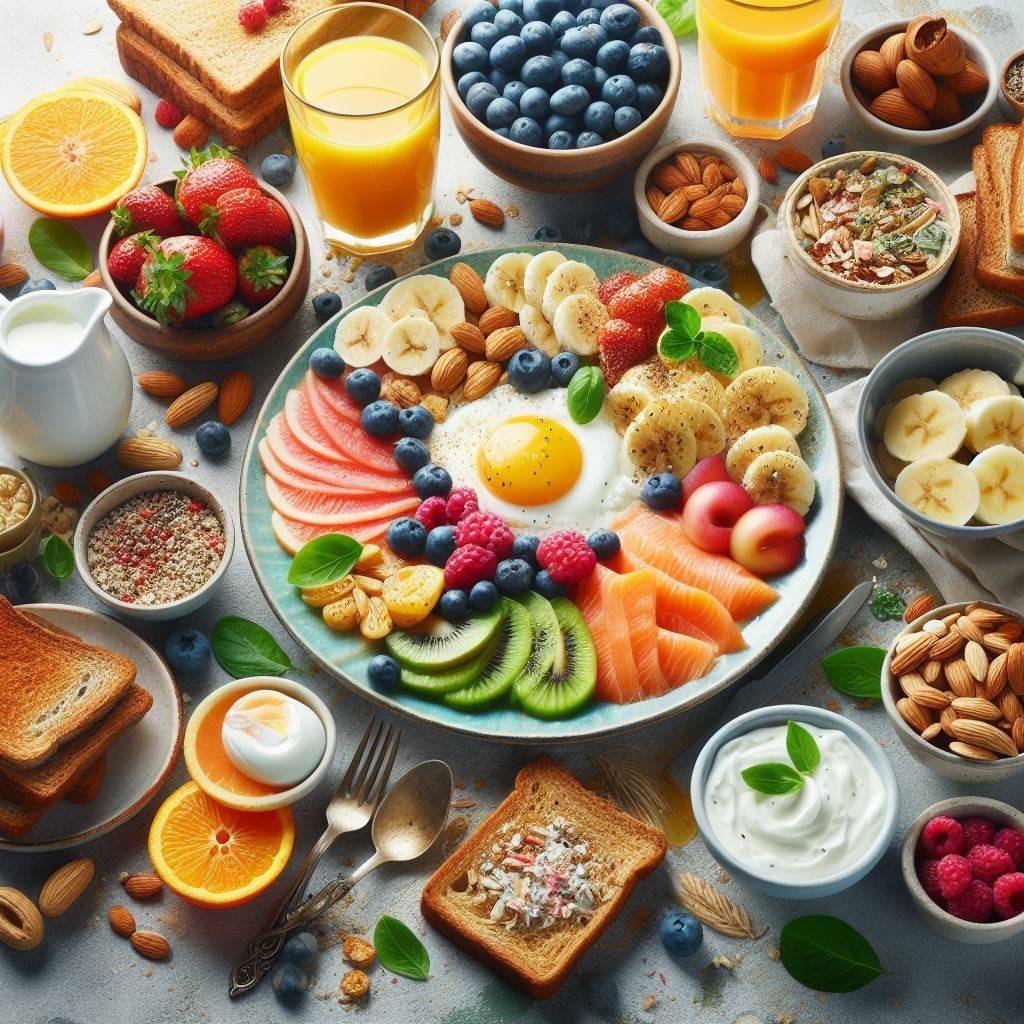Mindful Eating for Mental Health: Anxiety and Depression Diet
Discover the power of mindful eating for mental health with our guide to an Anxiety and Depression Diet. Nourish your mind and find calm today.
What is an Anxiety and Depression Diet?
If you’re one million who struggle with anxiety or depression, you may have heard about the potential benefits of an anxiety and depression diet. But what does it mean to follow this style of eating?
An anxiety and depression diet is eating patterns focused on nutrient-dense whole foods that can help reduce symptoms and support better mental health. It emphasizes anti-inflammatory ingredients like fatty fish, leafy greens, nuts, and seeds while limiting processed foods, added sugars, and unhealthy fats.
The basics of an anxiety and depression diet involve:
- Eating more foods rich in omega-3s, antioxidants, probiotics, and other nutrients
- Reducing intake of refined carbs, fried foods, and foods with lots of preservatives
- Staying hydrated
- Being mindful while eating
The goal is improving gut health, reducing inflammation, stabilizing blood sugar, and ensuring you get adequate nutrients – all factors that can affect mental well-being.
Why Does Diet Matter for Anxiety and Depression?
A growing body of research shows that the foods you eat can influence your anxiety and depression levels. There is a strong connection between your gut microbiome (the trillions of bacteria in your intestines) and your brain via the gut-brain axis.
Eating an imbalanced, inflammatory diet high in processed fare and short on nutrients may negatively impact gut health. This can affect neurotransmitter production and brain signalling pathways related to mood regulation.
On the flip side, an anti-inflammatory anxiety and depression diet provides antioxidants, healthy fats, fiber, and other nutrients that benefit both your gut microbiome and brain function. Certain diets like the Mediterranean diet have even been linked to reduced risk of depression.
Best Foods for the Anxiety and Depression Diet
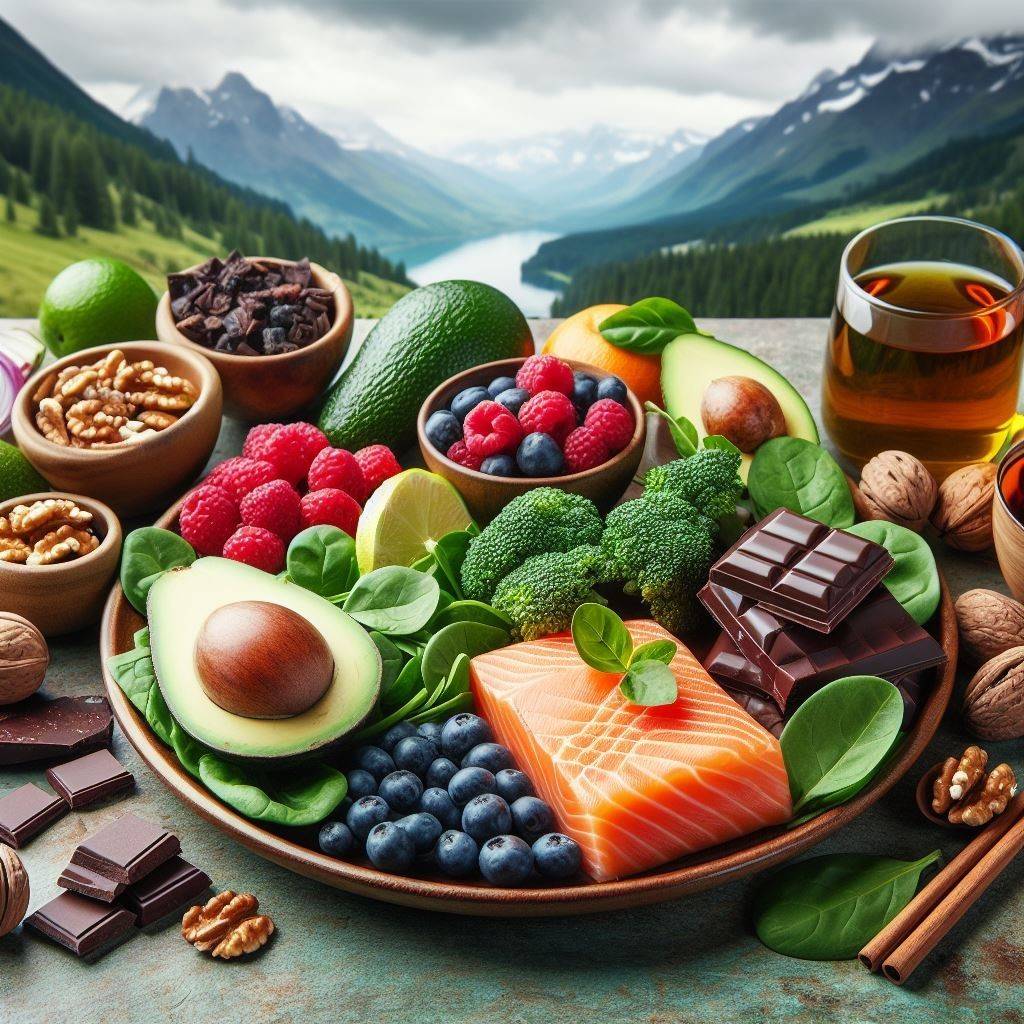
Fatty Fish
Salmon, mackerel, sardines, and other fatty fish are rich in omega-3 fatty acids, like EPA and DHA. These healthy fats are anti-inflammatory and critical for brain health and neurotransmitter production. People with anxiety and depression often have lower omega-3 levels.
Nuts and Seeds
Walnuts, almonds, chia, and flax seeds provide plant-based omega-3s along with fiber, protein, and antioxidants like vitamin E. Brazil nuts are also an excellent source of the mood-boosting mineral selenium.
Leafy Greens
Spinach, kale, Swiss chard, and other leafy greens are packed with folate (a B vitamin that regulates neurotransmitters), magnesium (which helps manage stress), and anti-inflammatory antioxidants.
Fermented Foods
Yogurt, kefir, sauerkraut, kimchi, and other fermented foods are great sources of probiotics to support a healthy gut microbiome. An imbalance of gut bacteria has been linked to anxiety, depression, and other mood disorders.
Berries
Blueberries, raspberries, strawberries, and other berries provide antioxidants that fight inflammation and protect brain cells from damage and degeneration related to depression and anxiety.
Dark Chocolate
In moderation, dark chocolate (with 70% cacao or higher) provides antioxidant plant compounds that can reduce inflammation and improve mood. The key is sticking to 1-2 small portions per day.
Other Beneficial Foods:
- Green tea
- Oats
- Beans and lentils
- Turmeric
- Chamomile tea
- Oysters (zinc and B12)
Foods to Limit on the Anxiety and Depression Diet
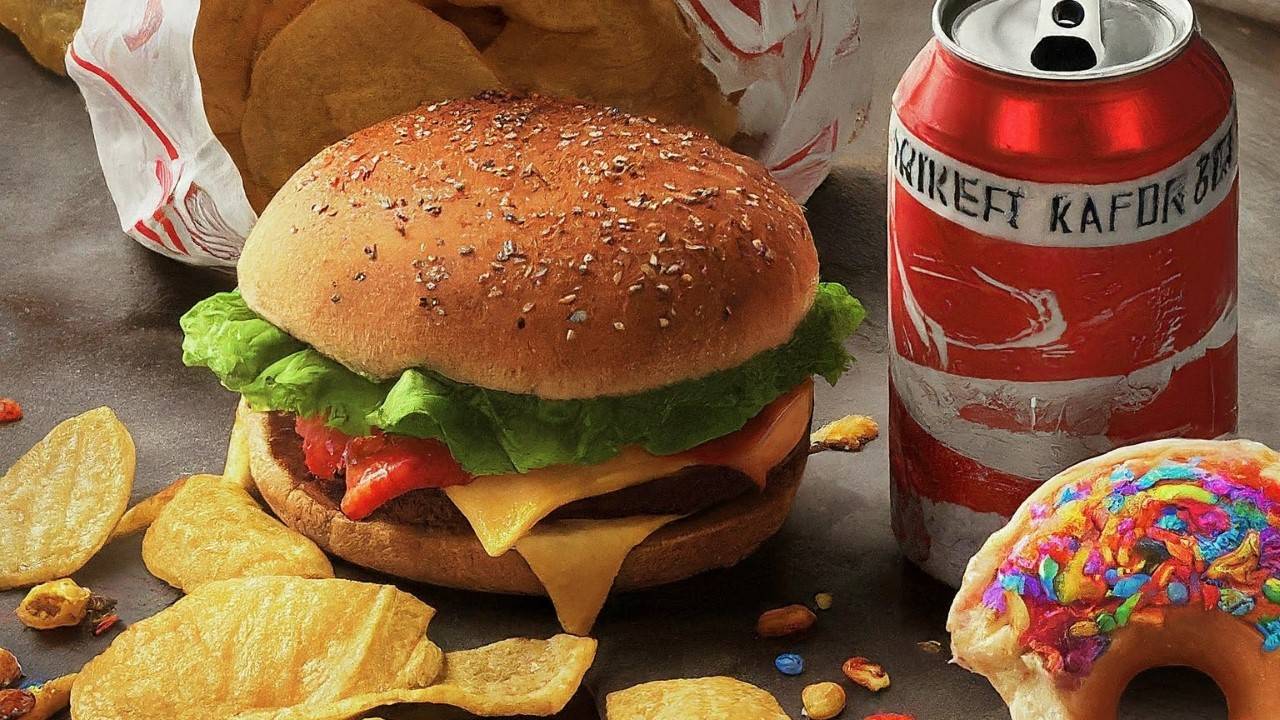
While focusing on nutrient-dense whole foods, it’s also wise to limit or avoid foods that may exacerbate anxiety and depression:
Processed Foods
Ultra-processed foods are high in pro-inflammatory ingredients like refined flour, unhealthy fats, sodium, and additives. Avoiding these can reduce inflammation and support better gut health.
Added Sugars
Too many added sugars can lead to blood sugar spikes and crashes that disrupt mood. They also promote inflammation.
Refined Carbs
White bread, pastries, white pasta, etc. are quickly digested and can cause unhealthy blood sugar fluctuations.
Fried Foods
These are high in inflammatory fats that may worsen anxiety and depression symptoms over time.
Alcohol
Though alcohol is a depressant, many people with anxiety and depression use it to self-medicate. However, chronic alcohol use worsens symptoms long-term.
Caffeine
For some, caffeine can amplify anxiety symptoms like restlessness, insomnia, and rapid heart rate. Limiting intake may help.
Anxiety and Depression Diet Sample Day
Here’s an example of what a day of eating on the anxiety and depression diet could look like:
Breakfast:
- Overnight oats with berries, chia seeds, walnuts
- Green tea
Lunch:
- Spinach salad with grilled salmon, avocado, quinoa
- A glass of water or kefir
Snack:
- Handful of almonds
- Square of dark chocolate
Dinner:
- Lentil curry
- Brown rice
- Sauteed greens
- Glass of water
Other Anxiety and Depression Diet Tips:
- Incorporate probiotics via yogurt, kefir, sauerkraut, or a supplement.
- Stay hydrated by drinking plenty of water.
- Be mindful while eating – no distractions.
- Exercise regularly.
- Get enough sleep.
- Try stress management like yoga, meditation, deep breathing.
Potential Benefits of an Anxiety and Depression Diet
While not a cure-all, adopting an anxiety and depression diet rich in anti-inflammatory whole foods may provide the following benefits:
- Reduced inflammation
- Better gut health
- Stabilized blood sugar levels
- Increased energy
- Improved sleep
- Enhanced concentration and focus
- Elevated mood
The key is sticking to it consistently and using it as one part of an overall healthy lifestyle, including exercise, stress management, and proper sleep.
Getting Started
Overhauling your diet can seem overwhelming. Focus on making small, sustainable changes over time:
- Increase intake of foods like fatty fish, leafy greens, nuts, and berries
- Cut back on processed snacks, sugary treats, and refined carbs
- Stay hydrated
- Take a probiotic supplement daily
- Practice mindful eating
Don’t think of it as a rigid diet, but a sustainable pattern of nutrient-dense eating to nurture both your body and mind.
Conclusion
There is no one-size-fits-all anxiety and depression diet, but focusing on anti-inflammatory whole foods can provide a variety of mental health benefits. The key is fueling your body with nutrients that reduce inflammation, balance neurotransmitters, and support gut health – all crucial for managing anxiety and depression symptoms.
Be patient, stay consistent, and use diet as one aspect of a multi-pronged approach that includes other lifestyle factors like exercise, sleep, and stress management. With time and commitment, adopting an anxiety and depression diet can help put you on the path to better mental well-being.
FAQs on the Anxiety and Depression Diet
Q: Does the anxiety and depression diet completely cure these conditions?
A: No, the diet alone cannot cure anxiety or depression entirely. But it can reduce symptoms and complement other treatments like therapy and medication.
Q: Are there any supplements I should take on this diet?
A: Probiotics, omega-3 fish oil, vitamin D, and B vitamins are a few well-studied supplements that may enhance the benefits of an anti-inflammatory diet.
Q: Is the anxiety and depression diet expensive?
A: Not necessarily. Many budget-friendly foods like lentils, canned fish, frozen fruits and vegetables, and oats are all part of this style of eating.
Q: How quickly can I expect to see results from the diet?
A: It may take several weeks or months of consistent effort to notice benefits like reduced anxiety/depression symptoms, more energy, and better focus. Be patient and stick with it.
Q: What if I have dietary restrictions?
A: The general anti-inflammatory principles can be applied whether you follow a vegan, vegetarian, gluten-free or other special diet. Focus on the nutrient-dense whole food options that fit your needs.

Adel Galal is a health and wellness writer with over 30 years of experience studying and writing about health, fitness, nutrition, and healthy living. He is the founder of NextFitLife.com, where he shares practical, evidence-based guidance to support long-term health at any age. Adel’s mission is simple:
to help people make smarter health choices that fit real life, at any age.

